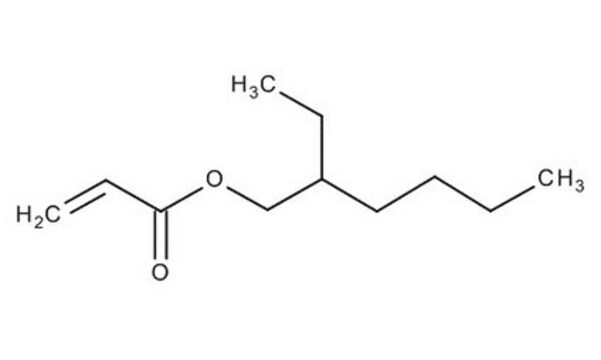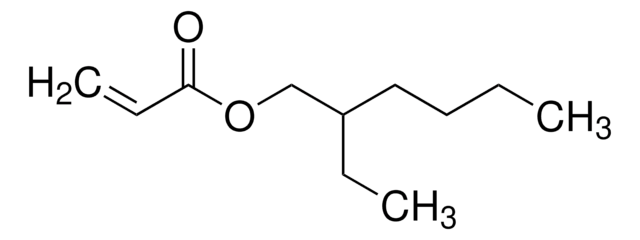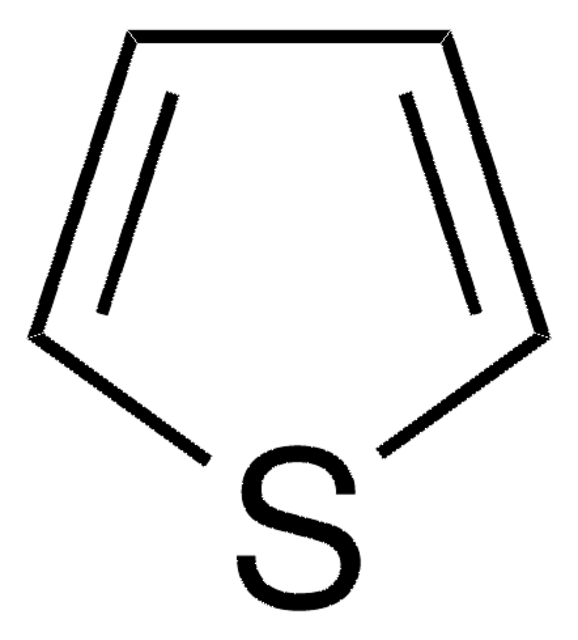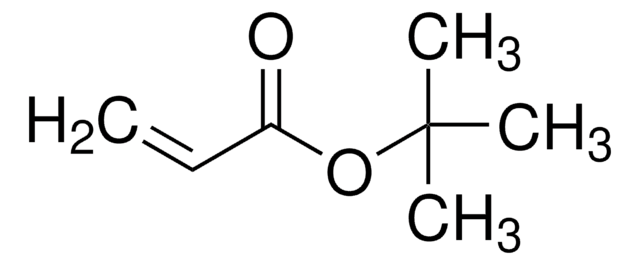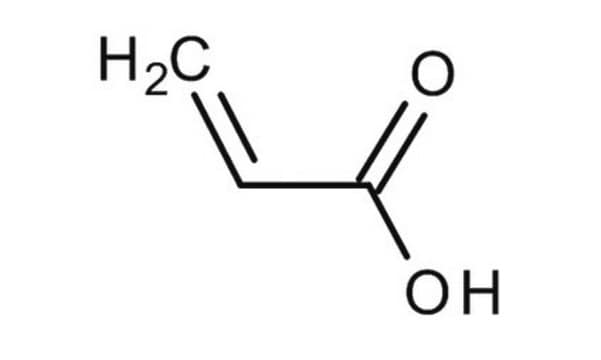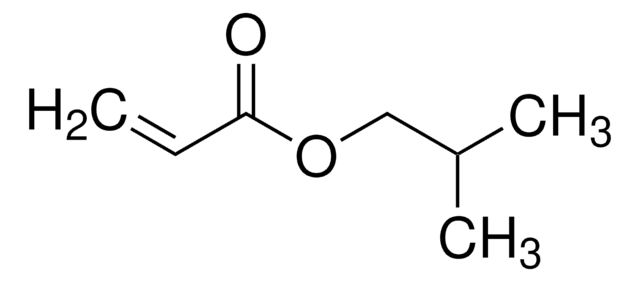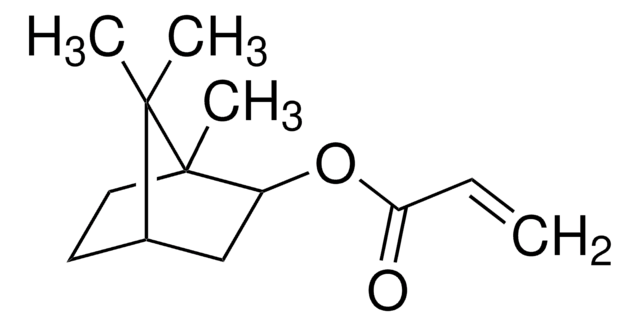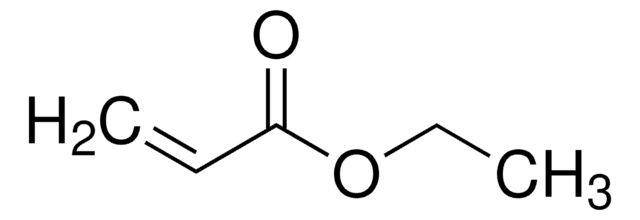290815
2-Ethylhexyl acrylate
98%, contains ≥0.001-≤0.11% monomethyl ether hydroquinone as stabilizer
Sinónimos:
(±)-Acrylic acid 2-ethylhexyl ester
About This Item
Productos recomendados
densidad de vapor
6.4 (vs air)
presión de vapor
0.15 mmHg ( 20 °C)
Análisis
98%
temp. de autoignición
496 °F
contiene
≥0.001-≤0.11% monomethyl ether hydroquinone as stabilizer
lim. expl.
6.4 %
índice de refracción
n20/D 1.436 (lit.)
bp
215-219 °C (lit.)
densidad
0.885 g/mL at 25 °C (lit.)
cadena SMILES
CCCCC(CC)COC(=O)C=C
InChI
1S/C11H20O2/c1-4-7-8-10(5-2)9-13-11(12)6-3/h6,10H,3-5,7-9H2,1-2H3
Clave InChI
GOXQRTZXKQZDDN-UHFFFAOYSA-N
¿Está buscando productos similares? Visita Guía de comparación de productos
Categorías relacionadas
Descripción general
Aplicación
- Formulation optimization and stability study of transdermal therapeutic system of nicorandil.: This research explores the formulation and stability of a transdermal therapeutic system using 2-ethylhexyl acrylate (2-EHA) as a key component, highlighting its potential in delivering drugs through the skin effectively (Tipre DN et al., 2002).
Palabra de señalización
Warning
Frases de peligro
Consejos de prudencia
Clasificaciones de peligro
Aquatic Chronic 3 - Skin Irrit. 2 - Skin Sens. 1 - STOT SE 3
Órganos de actuación
Respiratory system
Código de clase de almacenamiento
10 - Combustible liquids
Clase de riesgo para el agua (WGK)
WGK 1
Punto de inflamabilidad (°F)
174.2 °F - closed cup
Punto de inflamabilidad (°C)
79 °C - closed cup
Equipo de protección personal
Eyeshields, Faceshields, Gloves, type ABEK (EN14387) respirator filter
Elija entre una de las versiones más recientes:
¿Ya tiene este producto?
Encuentre la documentación para los productos que ha comprado recientemente en la Biblioteca de documentos.
Los clientes también vieron
Nuestro equipo de científicos tiene experiencia en todas las áreas de investigación: Ciencias de la vida, Ciencia de los materiales, Síntesis química, Cromatografía, Analítica y muchas otras.
Póngase en contacto con el Servicio técnico
